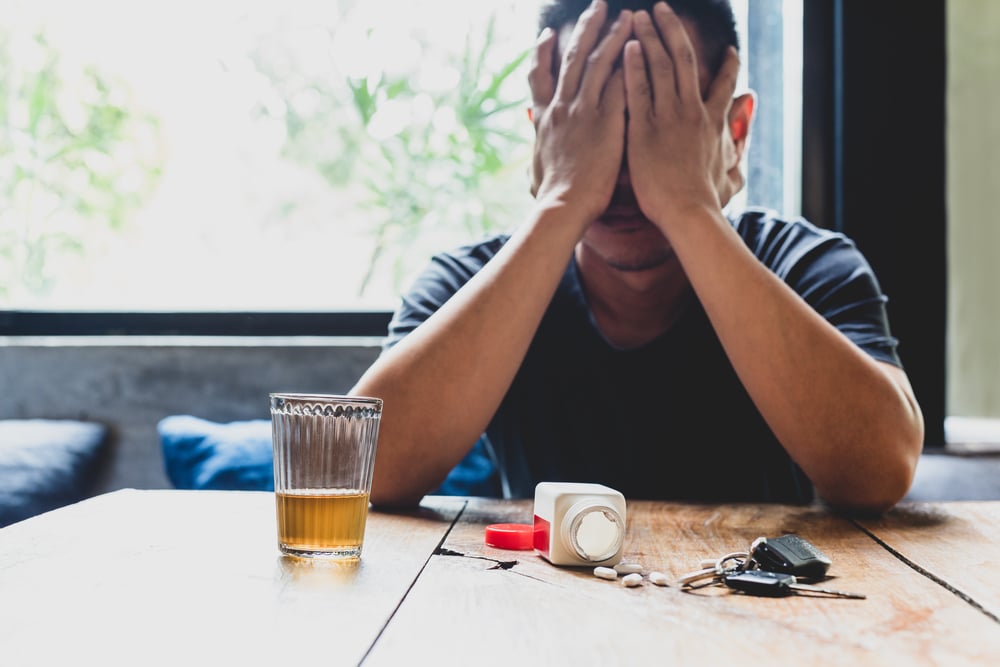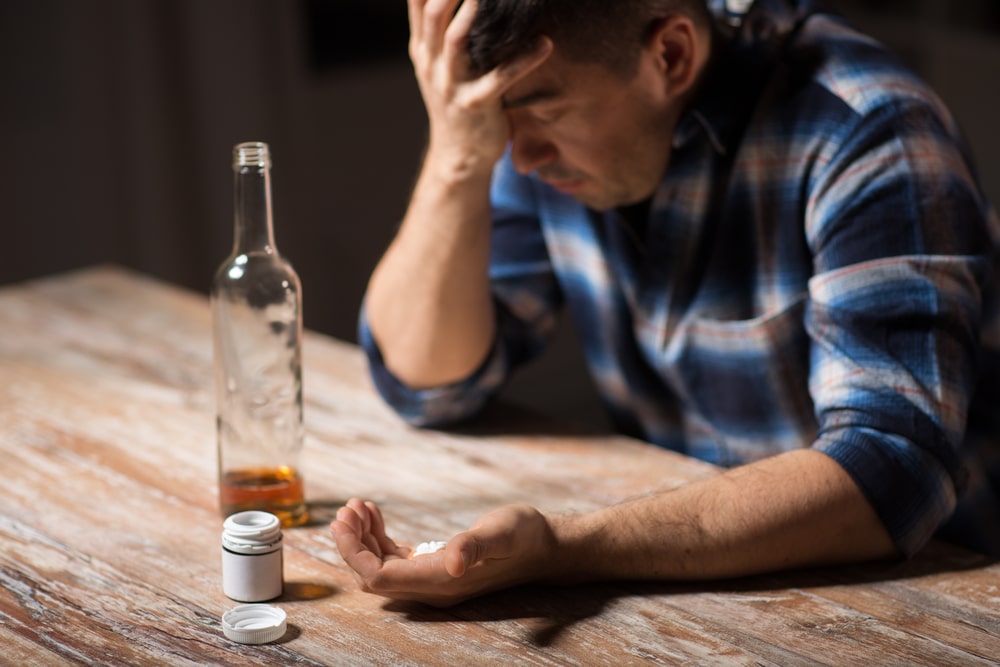Did you know that you shouldn’t drink alcohol while taking Klonopin? While you might be tempted to do so, mixing these 2 substances can cause serious risks.
In this article, we here at Laguna Shores will break down why Klonopin and alcohol don’t mix and why you should avoid it while taking this medication. Read on to discover the answer to this question and more about this medication and the mixing of substances.
What Is Klonopin?
The drug Klonopin is a part of the benzodiazepine family and is also known as clonazepam. It’s used to reduce electrical activity through the brain and help with muscle relaxation. It’s often used to prevent seizures or help with anxiety.
Doctors normally only prescribe Klonopin for 2-3 weeks. Keep in mind that there’s the potential for abuse if taken longer.
Mixing Klonopin and Alcohol
Mixing Klonopin and alcohol is dangerous since they’re both central nervous system depressants. The calming effect of Klonopin has the potential to turn addictive.
If you combine these 2 substances, it can cause you to feel depressed or drowsy. You also increase your risk of developing side effects as well.
Mixing can lead to:
- Lack of coordination
- Sleepiness
- Drowsiness
- Increase your risk of falling
- Comas
- Difficulty breathing
- Depressed breathing
If you experience clammy or pale skin you might be experiencing a lack of oxygen. Pay attention to blue tinting underneath your fingernails or lips as well.
Serious Side Effects:
- Fall injuries
- Memory problems
- Reduced liver function
The Dangers of Depressed Breathing
Depressed breathing means that not enough oxygen is getting to your brain. This leads to your brain sending oxygen to your vital organs in order to protect the heart.
First, blood oxygen will be removed from the extremities which leads to the blue tint in your fingernails or lips. Over time, your brain will start shutting down vital organs which can include the brain.
Physical Coordination Impairment
Whether you’re mixing Klonopin and alcohol or other substances, it can lead to serious side effects such as impaired physical coordination. When you take these alone they cause impairment, and combining them can increase this side effect.
Klonopin Overdose Symptoms
- Lack of motor skills
- Disorientation
- Decreased heart rate
- Low blood pressure
- Blurry vision
- Loss of consciousness
- Hallucinations
Dependence On Klonopin and Alcohol

If you develop a dependence on Klonopin and alcohol, you’ll notice your body won’t function the same without Klonopin in your body. You might experience withdrawal symptoms if you go without consuming the medication.
While you’ll want to continue taking the medication to avoid the withdrawal symptoms, this can lead to Klonopin addiction. Klonopin addiction can lead to a change in mood and behavior.
When it becomes an addiction depends on:
- The amount of Klonopin you take
- How often you take it
- How long you take it for
Withdrawal symptoms:
- Seizures
- Severe depression
- Anxiety
- Aggression
- Irritability
What To Do for Klonopin Addiction?
If you’re experiencing addiction it’s important to get professional help for the withdrawal process. Keep in mind that sometimes those who are overcoming alcohol addiction are given Klonopin for anxiety.
It’s important that you have a professional follow your recovery to prevent addiction. Check out a detox program in your area to help you overcome substance addiction. The best course of action is to catch addiction as fast as possible.
What To Do if You Overdose?
If you overdose on any substances you’ll want to dial 911 or contact a poison control center immediately. If you experience decreased reflexes, confusion, drowsiness, or loss of consciousness, these are signs of a Klonopin overdose.
What if I Miss a Dose?
If you forget to take a dose of Klonopin, take your next dose and skip the one missed. Never double up the dose you take.
Storing Klonopin
Keep Klonopin away from moisture and light at room temperature. Never keep it in the bathroom, and ensure that pets or children can’t access it. If you don’t complete your dose, never flush it down the drain or toilet.
Known Interactions
Before taking Klonopin, speak with your medical professional about all medications you’re currently taking. This will ensure that there will be no harmful interactions.
If you experience an allergic reaction, speak with your doctor about your symptoms. Before taking it, speak with your doctor about any current allergies to other medications or ingredients.
If you have glaucoma, kidney disease, lung problems, a blood disorder, or other medical problems, you’ll want to speak with your doctor before taking it. Keep in mind that this medication can make you drowsy or dizzy. Avoid alcohol or marijuana since they can intensify this symptom.

Mixing Klonopin and Caffeine
Since Klonopin is given to help with anxiety, caffeine can intensify anxiety symptoms. Caffeine can also increase the effects of Klonopin as well. This is due to Klonopin being a depressant, and caffeine being a stimulant.
Mixing Klonopin and Opioids
Mixing opioids and Klonopin can cause serious side effects, and lead to a fatal overdose. Many opioid-related overdoses also include Klonopin.
Long-term effects can include:
- Memory Loss
- Slower reflexes
- Depression
- Digestive issues
- Lack of muscle coordination
The Dangers of Mixing Klonopin and Alcohol
Now that you’ve explored more about the dangers of mixing Klonopin and alcohol, you should have a better idea of why mixing these can lead to serious side effects. Are you currently struggling with addiction and not sure what to do next?
Do you wish you could go back to a time when addiction wasn’t a part of your life? Contact us today, and our drug rehab program will come up with an action plan that meets your needs. Don’t delay getting treatment today.

 Matthew Beck B.A, M.A, LMFT
Matthew Beck B.A, M.A, LMFT 


